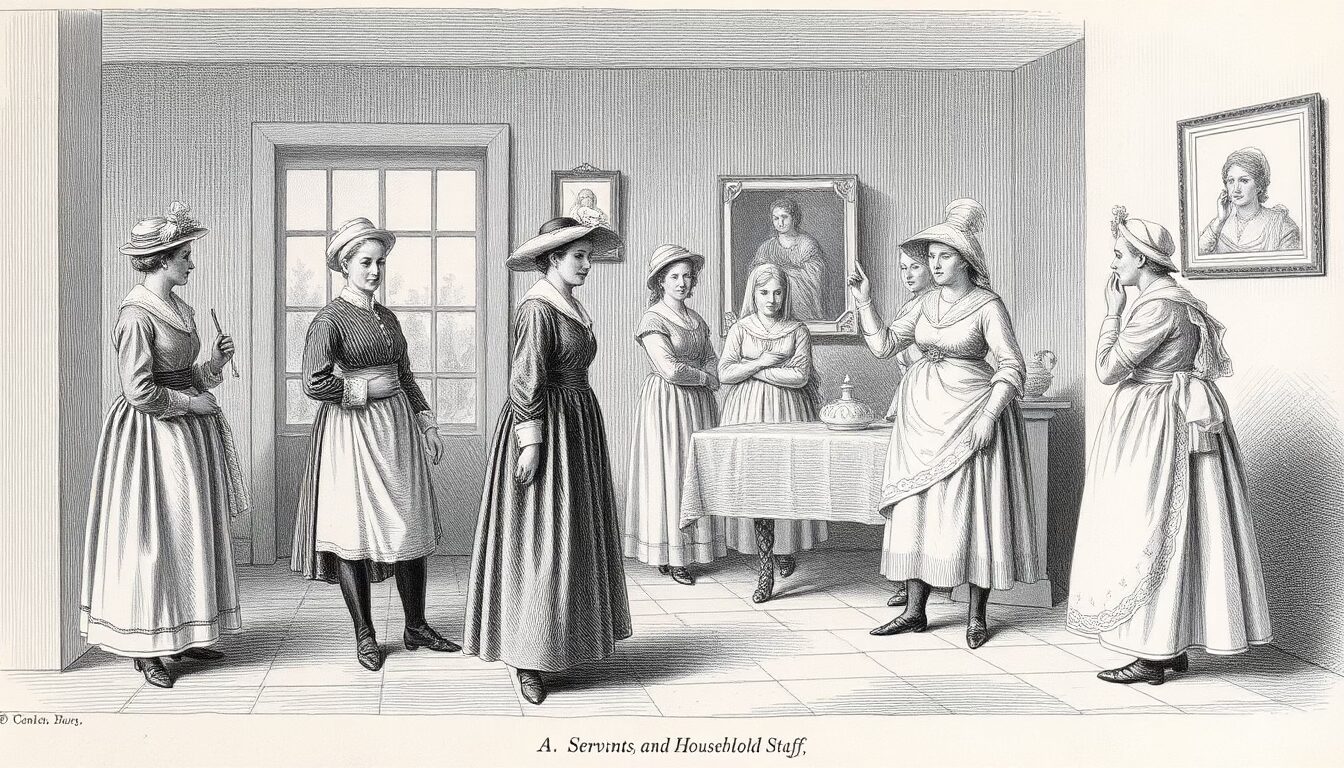Servants were an integral part of 18th century English society, particularly for the middle and upper classes. This chapter explores the roles, responsibilities, and lives of household staff during this period.
Roles and Responsibilities
Servants performed a wide range of tasks, from cooking and cleaning to personal attendance. Elizabeth Purefoy’s letter illustrates the diverse duties expected of a single servant:
She must sew plain work, wash fine linen & iron, & to help send in dinner on extraordinary days. I should like her never the worse if she be forty years old.
Dr. Claver Morris mentions the musical talents expected of some servants:
I paid to have my apprentice Jack Watts instructed in the violin and also for music lessons for another of my men.
Hiring and Wages
Servants were typically hired on yearly contracts, often at fairs. William Holland describes this process:
He asked me if he was to go on for another year. I answered that I feared that the work would be too hard for him and bring him down too much. He smiled and said he could do the work well enough. You can so if you so please, returned I.
Wages varied depending on the position and the employer’s means. Nancy Woodforde notes:
This day my uncle gave me a ten pound Bank Bill which I have of him every year for cloaths and pocket money.
Relationships with Employers
The relationship between servants and their employers could range from strictly professional to almost familial. Dr. Samuel Johnson’s relationship with his servant Francis Barber was particularly close:
His sincere regard for Francis Barber, his faithful negro servant, made him desirous of his further improvement, that he now placed him at a school in Bishop’s Stortford, in Hertfordshire.
However, tensions could also arise. William Holland expresses frustration with his servants:
My wife spoke to Ann about her extreme dirt and she was saucy, she is to go, however the matter is made up for the present.
Living Conditions
Servants typically lived in the house where they worked, often in spartan conditions. C.P. Moritz, a German visitor, observes:
My shoes are not cleaned in the house, but by a person in the neighbourhood, whose trade it is; who fetches them every morning, and brings them back cleaned; for which she receives weekly so much.
Career Progression
Some servants were able to improve their station over time. William Holland mentions a former servant who had prospered:
William Tutton here, an old servant of mine and Clerk of Monkton Farley and married to another old servant, Sarah Castle, by whom he has two or three hundred pounds. In short he is now a considerable man, receives Tithe for me and is employed by the Dowager Duchess of Somerset in various matters.
Challenges and Controversies
Servants faced various challenges, including long hours, demanding work, and sometimes mistreatment. Pregnancy among female servants was a common issue, as Henry Purefoy notes:
Because my coachman is run away from me for fear of a great belly a girl lays to him.
In conclusion, servants were a crucial part of 18th century English society, particularly for the middle and upper classes. Their roles were diverse, their relationships with employers complex, and their living conditions often challenging. While some were able to improve their circumstances over time, many faced significant hardships. The servant-employer relationship provides a unique window into the social dynamics of 18th century England.
